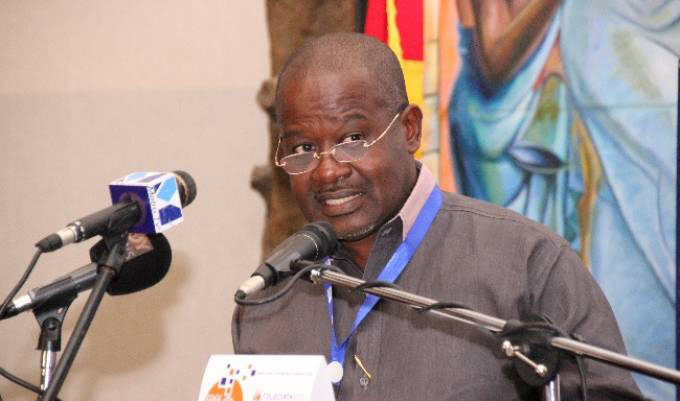Kwame Jantuah, Ghana’s head of the African Energy Consortium Ltd and Senior Vice-President of the Freddie Jordan Oil Com-pany Ltd, has told Guyanese that the onus is on them to equip themselves or lose out on opportunities in the oil sector.
He emphasised that as with all corporations, their main interest is to rake in profits and not the personal advancement of any person or country they work in.
“I give these examples to reiterate that as one finger points at government to put in the enabling environment, and one finger points at the IOC’s (Inter-national Oil Companies) not to only have personal interest but personal friends in partnership, three fingers are pointing back at yourself; indicating the onus is on you to get trained and make yourself and company ready to participate…,” he told the Guyana International Petroleum Exhibition (GIPEX) conference yesterday at the Marriott Hotel.
“Find a niche for yourself. And working together, form joint ventures amongst yourselves to take advantage of the opportunities. The time from exploration to production for Guyana has been short, just like we went through, and you will need to accelerate putting in place your laws, training, capacity building. The citizens need to be patient and not think they are being shortchanged, and as I said earlier think long term,” he further stressed.
Reflecting on lessons his country learned and how they mobilised to tap into the local content area, he recalled that there was once a time when oil companies were not interested in hiring their welders and fabricators. However, what we didn’t understand was that welding and fabrication in the oil industry was totally different from normal welding and fabrication they were accustomed to and that those persons had to be trained specifically for the industry.
“One might expect the oil companies to help but really it wasn’t their job to do so. They could give the specification of what grade of technician or welder they required but it was up to us to meet this specification. We therefore set up a welding and fabrication association and got the oil companies to help bring experts to train members and also threw an open invitation to those Ghanaians who were working especially in the gulf countries doing welding and fabrication to come home and help and they brought their expertise to bear and help train others,” he said.
“We turned fisher folk into divers since they had no fear of the sea and taught them new skills in under water fabrication and maintenance of subsea infrastructure. We trained welders to maintain Con-tainerised Cargo Units—CCU’s that are used to transport equipment and goods to the rigs and the FPSO’s from land,” he added.
It is the same way, he pointed out, that Guyana must find the strengths of its human resources and build on them, even as he pointed out that it must also be noted that there is a place for the diaspora.
Jantuah offered advice to this country, stressing that its populace must think long term. “It is a highly technical industry but not impossible to penetrate but take it seriously. It has the capacity to trigger other parts of the economy, find out which sectors. The IOC’s have personal interest and no personal friends but don’t blame them because they have shareholders to answer to when one considers the kind of investment required. In deep water drilling one well can cost US$100 million and they can hit a dry well with nothing. How-ever, seek for equitable partnerships with them and drive home your demands.
“In your negotiations, have professional negotiators to put your country’s case across and specialised oil and gas lawyers to lead your discussions. What the oil industry understands are governing laws that work and governments must seek to put their laws in place but the citizenry should know that these laws are dynamic and from time to time they must be reviewed,” he added.
The government here has been strongly criticised for not employing experienced negotiators for the 2016 Production Sharing Agreement with ExxonMobil’s subsidiary EEPGL.
Tempering expectations has to be addressed also and Jantuah believes it “must be kept to a minimum” because of the volatility of prices of the commodity.
“There are so many factors that can influence production, the oil price being one of them, the benchmark price you set for your budgets, a major challenge in the OPEC producing countries as in America can influence both your production and price,” he said.
To this country’s policymakers, he advised them to be prudent as they invest the revenue from the industry.
“Be very mindful of the big word corruption,” he said to locals, as he underscored that everyone has to have watchful eyes on the sector and hold their decision-makers accountable.
“The oil and gas industry is big enough to take care of everyone if local content is practised in favour of the people and there is trust, transparency and accountability and above all a long- term national development plan that will help invest the revenue equitably,” he said.
“There should be deliberate action where local companies should be given the first consideration of refusal, duty waivers to help build their capacity, local goods addition and certification,” he added.

